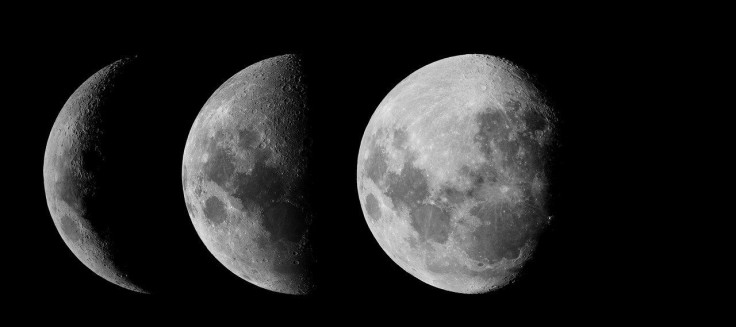Men's Sleep More Influenced By Lunar Cycle, Study Finds
KEY POINTS
- Researchers looked at the "controversial" topic of effect of lunar cycle on sleep
- They focused on the difference between the waxing and waning of the moon
- They found that men's sleep was affected by the lunar cycle
- Women's sleep was "largely unaffected," researchers said
Can the lunar cycle really affect people's sleep? In a new study, a team of researchers found men's sleep is more affected by the planet's satellite.
There's a bit of controversy on whether human sleep can really be affected by the lunar cycle, the researchers of a new study, published in the journal Science of the Total Environment, said. In an earlier study, for instance, researchers reported that people got later sleep onset and shorter duration some three to five days before the full moon.
However, the results of the many studies on the topic have generally produced "conflicting" results, Uppsala University noted in a news release, as some of the studies reported a link but the others did not.
For the current study, the researchers looked at "one-night sleep recordings" from 852 subjects in Uppsala, Sweden, of which 492 were women and 360 men.
Specifically, they looked at the difference in the sleep during the waxing period, or the day after the new moon until the full moon and the waning period or the day after the full moon until the new moon. This is because the illumination of the moon's surface increases during the waxing period and decreases during the waning period.
Further, there is also a difference in the timing of the meridian of the moon or when it "reaches the highest position in the sky," during the waxing and waning periods. During the waxing period, the timing of the meridian shifts to late evening hours, but shifts to daytime hours during the waning period, Uppsala University noted.
The researchers found that human sleep can really vary across the lunar cycle, with shorter and less efficient sleep during the waxing phase. Interestingly, however, the researchers noted that this was "more pronounced" in men.
New study from my group: Our findings suggest that the effects of the lunar cycle on human sleep are more pronounced among men. https://t.co/XqsOeJiQD5
— Christian Benedict, Associate Professor (@sleep_advocate) September 11, 2021
Specifically, the men displayed "lower sleep efficiency" and were awake for longer on the nights of the waxing period, but the same was not observed in women.
"We found that men whose sleep was recorded during nights in the waxing period of the lunar cycle exhibited lower sleep efficiency and increased time awake after sleep onset compared to men whose sleep was measured during nights in the waning period," study corresponding author, Christian Benedict of Uppsala University, said in the news release, adding that women's sleep was "largely unaffected by the lunar cycle."
"The observed differences in sleep between the waxing and waning phases may be driven by the moon's illumination," the researchers wrote. "With each additional day during the waxing phase, the moon reflects more sunlight to the earth, reaching a maximum illumination at the day of the full moon."
Uppsala University also cited a recent study in which researchers suggested that the male brain is possibly "more responsive to ambient light" than the female brain.
"Our study, of course, cannot disentangle whether the association of sleep with the lunar cycle was causal or just correlative," Benedict noted in the news release.
It does, however, add another interesting piece to the puzzle of just how the lunar cycle can affect people.

© Copyright IBTimes 2025. All rights reserved.






















